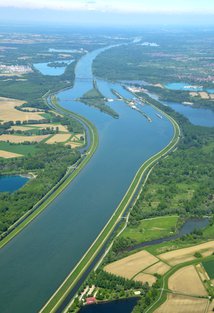Watercourses
The main issues
Across the world, there are 260 cross-border river basins shared between at least two countries. River basins represent two-thirds of the surface area of the Earth’s land mass and are home to nearly 40% of the world’s population. 15% of countries worldwide depend on a neighbouring country for more than 50% of their water resources.
There are many cross-border conflicts linked to water resources. Pollution of rivers has systematic consequences for the territories on either side of national borders. Although over several centuries many agreements have been signed between countries bordering rivers to ensure the freedom to navigate on cross-border rivers, as well as – since the end of the nineteenth century – for the building of hydroelectric dams, even today there are very few agreements, conventions or treaties concerning action to combat pollution and the management of aquifers, and fewer still concerning the integrated management of shared river basins.
In Europe, the cross-border management of these watercourses is a rapidly expanding field for cooperation and constitutes an original vector for European integration that goes beyond the fundamental issue of the environment and has taken on a strong symbolic and cultural dimensional.
The European Commission’s Water Framework Directive, which was published in 2000, formalised a series of clear guidelines in the area of cross-border cooperation on watercourses. Providing the framework for European policy in this area, the aim of the Directive was to achieve good status of surface water and groundwater resources by 2015. In the Commission's opinion, this objective would only be met for half of the European resources in water.
In order to meet this objective, countries with common borders are putting in place tools to manage watercourses jointly, such as cross-border river contracts. These constitute technical and financial agreements that cover all of the watercourses in a river basin and allow thematic cross-border studies to be carried out in different areas (water treatment, flood prevention, resource management and riverbank development). Border river contracts (CTR) have been signed for almost the entire French border.
Photo : Shutterstock / SF Photo


